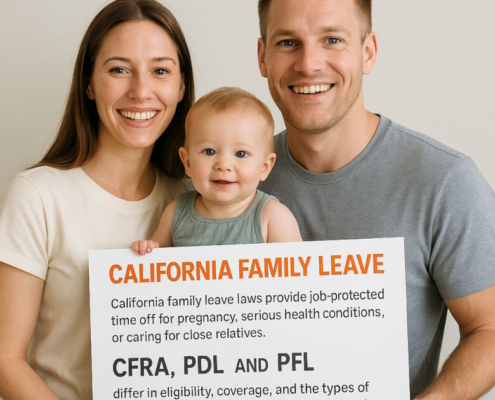Are you allowed to take time off to grieve?
After a death in the family or the loss of a friend, it’s normal to need time away from work to deal with feelings of loss, make funeral preparations, and attend to any other matters that may arise. This is why many companies have a policy about bereavement leave. Getting to know them better could shed light on how to handle this situation.
Learn what bereaved leave is, how to seek it, and any questions you may have concerning policy rules in this comprehensive article.
How does bereaved leave work?
When an employee suffers the death of a loved one, they may be eligible for time off from work under a policy known as bereavement leave. In addition to influencing your mental health, the loss might have an effect on your productivity at work. Every company has its own policy about employee bereavement. For instance, depending on your company, bereavement leave could be either paid or unpaid. Get to know your employer’s leave policy and feel free to ask questions if you don’t understand something.
Is it mandatory for businesses to offer time off for grieving employees?
Neither federal nor most state laws mandate that companies provide bereavement leave. This is usually something you and your employer’s HR department can talk about. To help employees understand what to do in the event of a family member’s death, many companies have leave policies in place. With these regulations as a guide, businesses have some leeway to adapt to specific situations. If you’re dealing with a difficult family situation, for example, you might be allowed to request more time.
In the absence of an existing policy, union members may be able to persuade their employer to establish a new bereavement plan. Furthermore, a union may be able to assist you in requesting or negotiating better terms for an existing policy, or in negotiating new terms altogether. One possible step in this direction is to draft a policy and include it in an employee handbook after determining its scope, parameters, and duration.
Why do companies give bereavement leave?
You may be more interested in working for a company that offers support at times of loss. This is because the company cares about its workers’ mental health. Employers who provide bereavement leave demonstrate that they value their employees’ ability to manage work and personal responsibilities.
When am I eligible to use my bereavement leave?
When a close relative or immediate family member passes away, you may be eligible for bereavement leave. The death of a loved one, whether human or animal, may also qualify you for time off from work, depending on your employer. Because loss impacts people differently, most businesses have come to terms with the need to be empathetic and accommodating.
You should consult the company’s handbook to find out the exact regulations, as many organizations provide varying amounts of leave time based on your relationship with the deceased. Their policies will determine how you can best use this time. You may, for example, take three days off in a row, or you could split your time across two weeks.
Is paid time off available for bereavement?
Leave for bereavement can be either paid or unpaid, depending on the employer’s policy. While some companies may provide a few days of paid leave in the event of a death in the family, others may just allow you to take time off without compensation.
After using up your designated grieving days, some may offer a mix of the two if you feel you need more time. If your company does not have a policy for employee bereavement, you may want to talk to your boss or someone in human resources about your concerns regarding losing your job.
For how many days does bereavement leave last?
Employers are not obligated by federal law to provide bereavement leave, therefore the duration of this leave might differ from one company to another. A typical policy for bereavement leave at most companies is three days of paid time off for the death of a loved one. A company’s policy may specify a maximum number of days off for spouses, parents, and children, but less time off for extended family members including grandparents, uncles, and aunts.
What are the main components of a standard policy for bereaved leave?
The following elements might be present in a policy regarding bereavement:
- Guidelines: This part usually has anything about going to the funeral, taking care of personal or financial matters, and getting back on your feet emotionally and mentally.
- Criteria: The policy may spell out who is eligible for bereavement leave. For example, the policy might only apply to full-time workers or be limited to situations involving the passing of close family members.
- Process: This section of the policy on bereavement leave can teach you and your coworkers the ins and outs of requesting time off and outlining the advantages that are available to you during this difficult time.
- Duration: Your company’s policy regarding bereavement leave should specify if and how you might convert your paid leave to unpaid leave.
You can better prepare for the unexpected and make informed decisions when you are familiar with your company’s rules.
What is the procedure for requesting bereavement leave?
Sending a brief email or letter to HR can be all it takes to request bereavement leave. Some companies might make you fill out a form about your relationship with the person who died, the name of the funeral home, and how long you’d like to be away from the office. As further documentation of your loss, some companies may want an obituary or funeral program.
In most cases, all it takes to request time off is clear and open communication between you, your superiors, and HR. A good rule of thumb is to advise your supervisor of the duration of your leave and any relevant project details that would be useful to your team while you’re away.
How are compassionate leave and bereaved leave different from one another?
In most cases, compassionate leave and bereavement leave represent the same thing. Definitions of the words could vary from country to country. You may be able to use compassionate leave to take time off for reasons other than a loved one’s death, such as taking care of a sick child or a pressing family situation.
What if my company does not provide paid time off for grieving?
You might still be eligible for leave following a loved one’s death, even if your company does not have a formal policy in place. If you’re sick and need time off, some companies may suggest that you use your vacation or sick leave instead. Look into the FMLA, which allows for unpaid absence in some cases, as it relates to family and medical matters. While FMLA does not typically authorize time for grieving, it does allow for the request of unpaid absence for the purpose of medical care for a family member.































